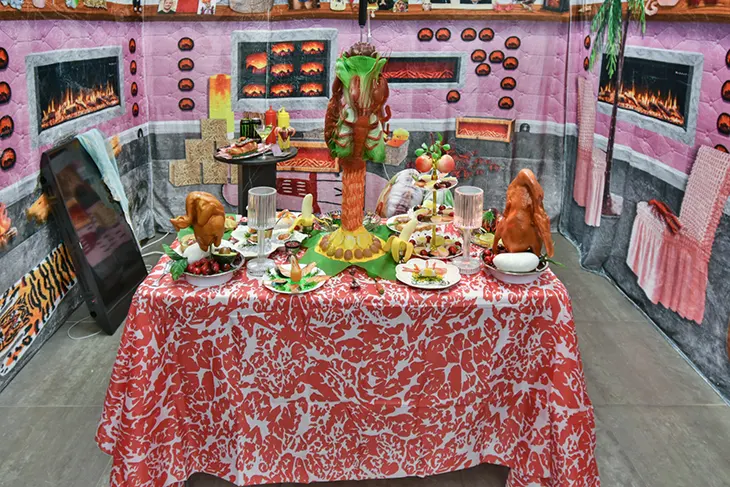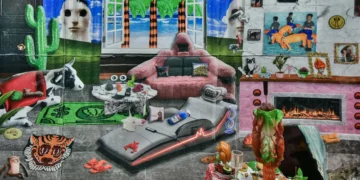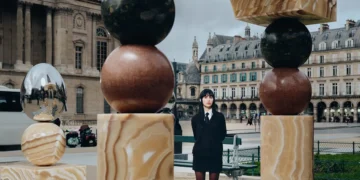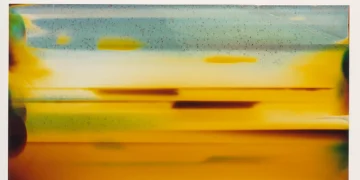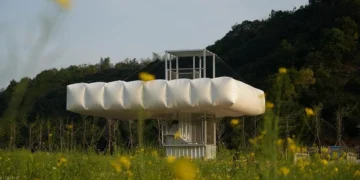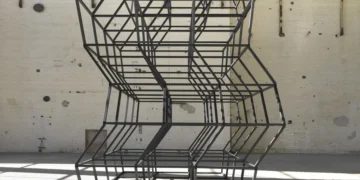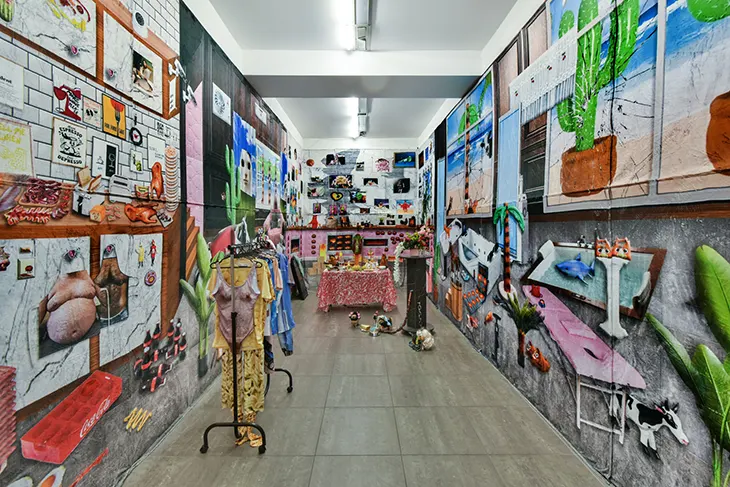
Vuk Ćuk has always approached art with a restless curiosity, but his latest exhibition at Zvono Gallery suggests a sharper turn toward the absurdity of the everyday. Titled I Wanted to Go Somewhere, Anywhere, But Then I Realized I Have Everything Here, the show revisits the foundations of his practice while staging a dialogue with our present, one defined by consumer platforms, algorithmic desires, and disposable objects.
ART
Ćuk mines AliExpress like an anthropologist sifting through artifacts of late capitalism. Instead of ancient relics, he finds plastic lobsters, toy hot dogs, rubber chickens, and synthetic salads. These items, produced in staggering quantities and sold worldwide with no expectation of longevity, form the raw material of his work. By arranging them into an “AliExpress feast,” complete with a rotating table mechanism, he reframes consumer trash as ritual. The artificial banquet is grotesque and comic in equal measure, pushing the viewer to question where value ends and absurdity begins.
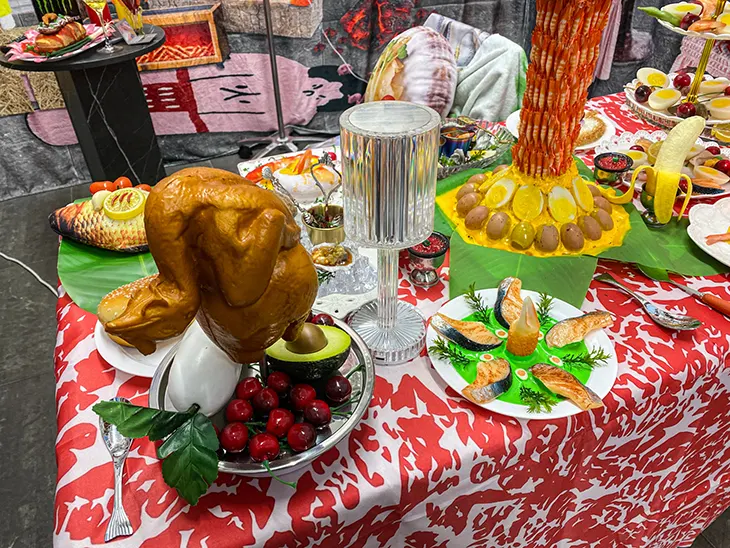
The installation has an unsettling humor. A rotating table filled with fake foods suggests both abundance and emptiness, a carnival of consumption that never nourishes. The familiar echoes of Duchamp’s readymades or Warhol’s soup cans are present, but Ćuk’s gesture feels rooted in our own moment: one in which the object is mass-produced and stripped of all purpose, sold by algorithm to fulfill an impulse that evaporates the moment after purchase. In this sense, the exhibition shifts focus from the items themselves to the cycle they inhabit, an endless scroll of desire and discard.
Ćuk extends the experiment through digital collage. By pulling more AliExpress detritus, plastic plants, novelty aprons, cheap fireplaces, into Photoshop compositions, and then printing them onto blankets sourced from the same platform, he shifts the conversation onto another register. These works function as portable murals of overproduction. The choice of blanket as medium matters: it undercuts the traditional status of canvas while simultaneously referencing comfort, domesticity, and mass availability. Saturated colors and jarring juxtapositions heighten the sense of overload, reflecting the way consumer culture floods perception with visual noise.
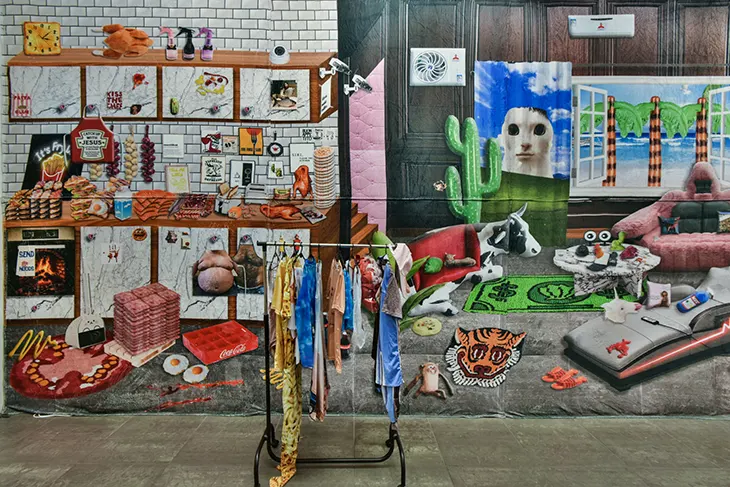
What keeps the exhibition from slipping into mere parody is the precision with which Ćuk organizes his chaos. The feast installation is staged with a sense of ceremony. The blanket collages are sharp, intentional in their rhythm of repetition and contrast. This care sharpens the irony: meaning is carved out of meaninglessness, and art emerges from what was designed to be disposable. In this tension lies the show’s critical charge.
Ćuk leaves the show humming with unease. The feast keeps spinning, the blankets insist on their gaudy visions, and the whole thing feels like a party thrown by an algorithm. You walk away with the taste of plastic still in your mouth, aware that the system he stages is the same one you checked on your phone before leaving the gallery.
